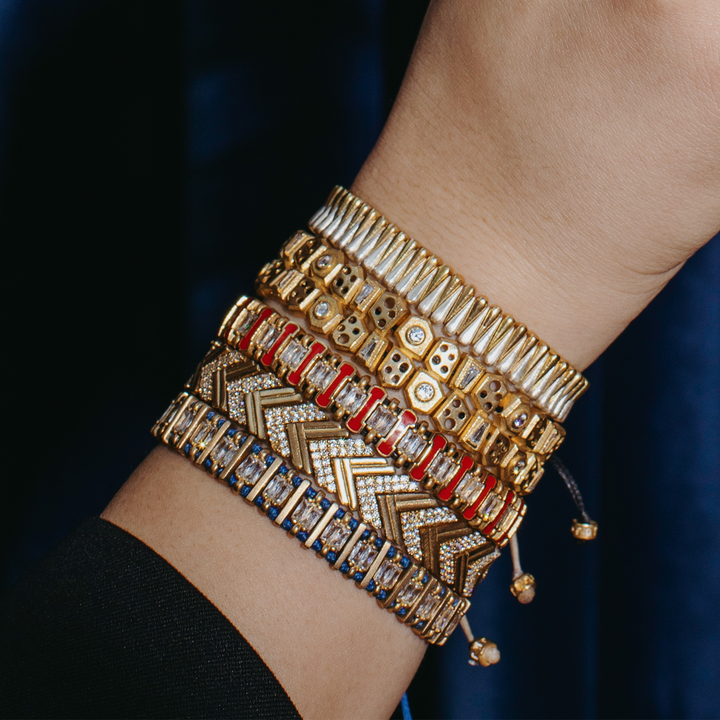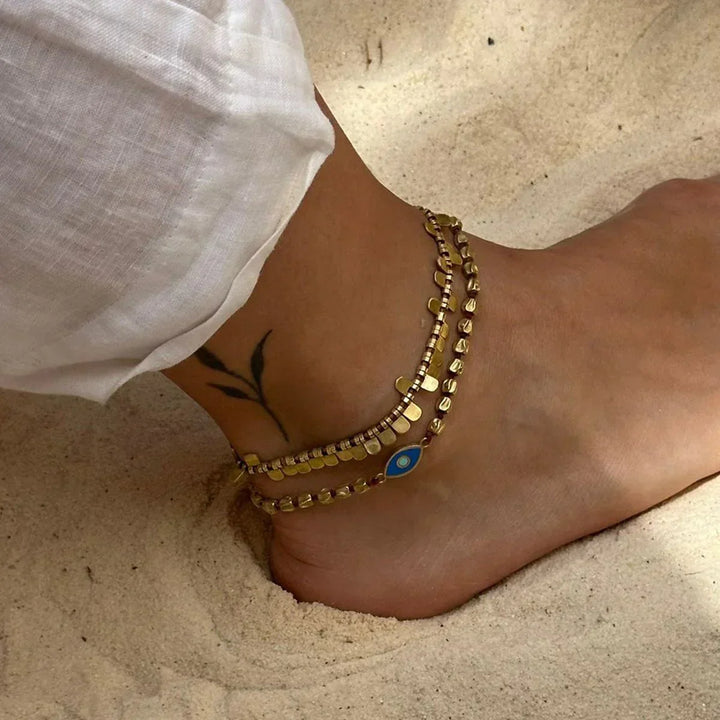The tragus is a small cartilage protrusion located at the front of the ear, just before the ear canal. This area is popular for wearing jewelry, and tragus piercing (piercing procedure) is very common among those looking to add an aesthetic touch to the ear.
What Does Tragus Mean?
The tragus refers to the small cartilage bump found at the front of the ear, just before the ear canal. It is located on the outer part of the ear and partially covers the auditory canal. The tragus serves both aesthetic and functional roles and is a popular site for ear piercings.
How is Tragus Piercing Done?
Tragus piercing should be performed by a professional piercer. The process is done in the following steps:
Preparation and Cleaning: The piercer cleans and sterilizes the ear area. This is crucial to reduce the risk of infection. Then, they mark the exact spot for the piercing.
Placement and Marking: The piercer carefully marks the precise spot where the piercing will be made to ensure symmetry and accuracy.
Piercing Procedure: The piercer uses a sterile needle to create a hole in the tragus area. The needle makes a clean hole, causing minimal pain.
Jewelry Placement: After the hole is made, a piercing jewelry (usually a small barbell or ball) is inserted. The jewelry is positioned to stay securely in place during the healing process.
Healing and Aftercare: The piercer gives detailed instructions for aftercare to prevent infections and promote healing. Typically, saline solution or antiseptic solution is recommended for cleaning.
Healing Process: Tragus piercings typically heal within 6 to 12 weeks. During this period, it is important to avoid pressure on the jewelry, clean it regularly, and prevent any risk of infection.
Pain Level: The pain level of a tragus piercing can vary based on individual pain tolerance but is generally a brief, moderate discomfort.
How to Care for a Tragus Piercing?
Caring for a tragus piercing during the healing process is crucial. Here are the steps for a healthy recovery:
Cleaning: Clean your piercing gently 2-3 times a day. Use saline solution or a sterilized antiseptic solution. Do not twist or move the jewelry while cleaning; use a cotton swab or clean cloth to wipe around the area gently.
Avoid Touching: Avoid touching the piercing with unclean hands, as bacteria on your hands can increase the risk of infection.
Avoid Harsh Chemicals: Do not apply harsh chemicals such as ammonia, alcohol, perfume, or antibacterial soaps to the piercing, as they can interfere with healing.
Be Cautious While Sleeping: Try not to sleep on the side with the piercing to avoid pressure on it or the risk of infection.
Healing Duration: The healing time for a tragus piercing is usually 6 to 12 weeks. Ensure proper care during this period.
Signs of Infection: If you notice swelling, pain, or yellow-green discharge, it may indicate an infection, and you should seek professional medical advice.
By following these care guidelines, you can ensure your tragus piercing heals healthily.
What is Tragus Swelling? Why Does It Occur?
Swelling around the tragus piercing is usually part of the healing process, but sometimes it can be a sign of infection or other complications. Here are the causes of tragus swelling:
Healing Process
Reason: Swelling is common after piercing as the body tries to heal the area. This is a natural defense mechanism and generally decreases within a few days.
When to Worry: If the swelling does not subside after a few days or worsens, it may indicate a problem.
Infection
Reason: Bacteria can enter the piercing, leading to infection. Symptoms of infection include redness, pain, increased temperature, and yellow-green discharge along with swelling.
When to Worry: If there is swelling accompanied by pain and foul-smelling discharge, an infection may be present. Seek medical help immediately.
Allergic Reactions
Reason: Certain jewelry materials (e.g., nickel, titanium, gold) can cause allergic reactions, leading to swelling, redness, and itching.
When to Worry: If the swelling does not subside after switching the jewelry, consult a doctor.
High Temperature or Pollution
Reason: Dirty environments or exposure to high temperatures (e.g., saunas, polluted water) can also lead to swelling.
When to Worry: Practice good hygiene and seek medical advice if swelling persists.
Excessive Pressure and Friction
Reason: Pressure from sleeping on your ear, phone use, or wearing headgear can cause swelling.
How Long Does a Tragus Hole Take to Close?
Healing Duration
General Healing: Tragus piercings typically heal within 6-12 weeks, but the hole may not be completely closed at the end of this period. The healing process continues for a while.
Full Healing: After full healing, the piercing hole will not immediately close when the jewelry is removed. The hole can remain open for 3-6 months.
Jewelry Removal
New Piercing: After jewelry is removed, the hole may start to close within a few hours, but this depends on the duration of the piercing, the body’s healing rate, and individual care.
Old Piercing: For piercings that have been in place for a long time, the hole may remain open for several years even after jewelry is removed. A small scar may remain.
Body and Care Factors
Body: Healing speed depends on factors like age, diet, general health, and immune system. Younger and healthier individuals generally heal faster.
Care: Improper care can lead to infections or inflammation, which can prolong the healing time.
How Long Does a Tragus Piercing Take to Heal?
Initial Healing Time: Tragus piercings typically heal within 6-12 weeks. This period includes the reduction of swelling and pain.
Full Healing Time: Full healing, meaning the skin is fully restored and the jewelry becomes less sensitive, can take anywhere from 3 to 6 months. During this time, be careful when removing and inserting jewelry.
Factors Affecting Healing Time
Individual Healing Speed: A person's immune system, age, and overall health can influence the healing process.
Aftercare: Proper cleaning and care are essential. Neglecting aftercare can lead to infections or inflammation, delaying healing.
Duration of Piercing: A newer piercing will heal faster than an older one, and older piercings may leave a permanent scar even after jewelry removal.
How to Choose a Compatible Tragus Piercing? Tips for Choosing Tragus Piercing Jewelry
Piercing Type: The most common types for tragus piercings are barbell (double-sided bar) and labret (flat-ended stud). A captive bead ring (CBR) may also be chosen, though it may not be suitable for everyone.
Material: Choose materials that are low in allergens such as titanium, nickel-free steel, and 14k/18k gold. Acrylic or plastic options may cause allergic reactions.
Size: The typical size for a tragus piercing is 6mm-8mm. Extremely long or short jewelry may cause irritation.
Design: Minimalist designs, such as a simple flat-ended labret or a stud with a small stone, can be decorative. Avoid large or heavy jewelry.
Hygiene: It’s important to maintain hygiene while inserting the piercing, and avoid changing jewelry until healing is complete.
Tragus Piercing Prices and How to Choose a Reliable Piercing Studio
Prices: Tragus piercing prices vary based on the studio's location, expertise, and the materials used. Typically, prices range from 100 TL to 500 TL, with more experienced piercers charging higher rates.
Choosing a Reliable Studio
Licenses and Certifications: Ensure the studio has health department approval and professional certifications.
Hygiene: Check that the studio maintains good sterilization procedures. A clean and organized environment reduces the risk of infection.
Experienced Piercer: An experienced piercer will ensure the procedure is done correctly. Research the piercer's background before making an appointment.
Reviews and Recommendations: Look for reviews and recommendations from previous clients online.
Important Warning: Piercing should only be performed in a hygienic and reliable environment. Be diligent about aftercare during the healing process to avoid complications.






